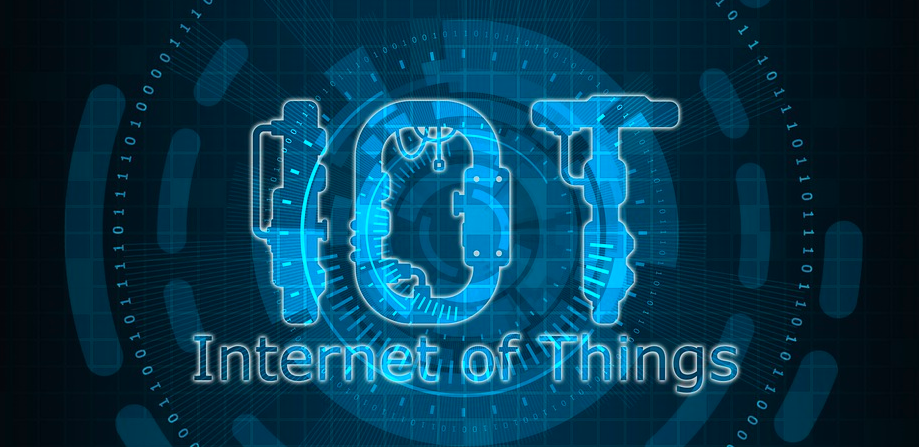
With numerous IoT cloud solution providers, to choose the best option could be challenging. When considering IoT cloud for your organization, you need to ensure that it is scalable, secure, and allow you to store the data in the cloud server you want.
So you want to adopt the IoT strategy for your organization. At this stage, you need to pay extra attention to the cloud solution you will use. Because your cloud platform will impact the performance of your IoT devices, infrastructure security, and network scalability. But, when there are so many providers, it is hard to find the best provider of the IoT cloud platform.
Thus, before you choose your solution, you should examine the essential features you need from your IoT cloud platform.
What is an IoT cloud platform?
The cloud platform is a gateway between IoT devices and the Internet. Such platforms also act as a toolset to manage your IoT devices that are out in the field. The IoT cloud platform should be both capable of receiving a large amount of data from IoT devices for successful bilateral communication with the cloud. It matters because some IoT cloud solutions provide a one-way connection, i.e., from device to cloud.
Also, the cloud platform should provide this mutual connection securely and seamlessly. This task might be tricky because the data comes from multiple sources, using different types of data collection patterns.
In the simplest terms, an IoT platform is an integrated service that offers you the things you need to bring physical objects online.
There are basically 4 types of IoT platform exists:
- End to End (E.g. Particle.io)
- Connectivity (E.g. Mulesoft.com, Hologram.io, Sigfox.com)
- Cloud (E.g. Cloud.google.com, salesforce.com)
- Data (E.g. Clearblade.com, Microsoft Azure, Thingspeak.com)
When examining these, you should take care of the following things:
- Connectivity
- Methods of Connectivity
- Market Longevity
- Type of Service
- Geographic Coverage
- Data Plan
- Security / Privacy
- Managed Integrations / API Access
- Data Access
- Domain Experts / Engineering Services/ Partner Collaboration
- IoT Ecosystem and Roadmap
- Hardware and Hardware Agnosticism
- Device Management
- OTA Firmware Updates
Essential features of IoT cloud platforms
For most organizations, the cloud platform’s flexibility in storing and streaming data is the essential criteria. Well, this feature is critical, but there are many others to take into account.
Scalability
IoT platforms should allow you to manage devices for machine-to-machine communication. While every IoT platform claims to handle millions of simultaneous device connections, only a few providers do that.
But why does the platform’s scalability matter? Well, because you may start your infrastructure with 10 IoT devices and then increase their number to 10,000. The more connected devices you need, the more comprehensive system you should build to handle them. In most cases, you can deal with it by creating load balancers, and distributing it over multiple servers via clustering. But such an approach increases latency between the node to node communication. Thus, if your IoT cloud platform shares your infrastructure with others due to the economy of scale, the increased load on one customer affects the performance of others.
To find out about the platform’s scalability, ask about their largest customer installation. You can also learn about the number of connected nodes being handled today. If the number is too low, you can validate the platform’s scalability via additional tools, such as IoTIFY.
Security
Advanced security tools are a must for your IoT cloud platform. They might include data encryption, methods for authentication, and different role-based layers of access control. At least, the platform should provide you with unique methods of identity-based authentication for your IoT devices, including X.509 based certificates. Handling enrolling certificates for devices on the field might be challenging.
So, the platform should include automation tools such as SCEP and CEP supporting protocols. As for the gateways, find an IoT cloud platform that offers SSL or DTLS encryption. Remember to ask about your platform’s capacity to handle SSL termination using different ciphers and authentication methods.
Data management
When looking for a perfect IoT cloud solution, consider that the platform is only a middleware between IoT devices and analytic services.
Also, not all cloud platforms may support applications and analytics tools your business requires. Or you may want to send the device data to your Azure, Salesforce, or AWS environment. In this case, find out more about the platform’s abilities to support integration with open source ecosystems via Webhooks or API. Besides this, you may also need to integrate a cloud platform with your existing workflow or ERP.
Price
The last but not the least factor that influences your cloud platform choice is cost. It depends on the type of platform you want to receive. There are three main types of cloud platforms – open-source cloud platforms for tech-savoy organizations, DIY hardware platforms for companies with little or no tech expertise, and solutions backed by large publicly traded companies. Each cloud platform segment has it’s pricing policy.
While data management services with open-source licenses are free of charge, DIY platforms apply subscription-based and Pay-As-You-Go pricing models. The monthly subscription cost starts from $8.33 /month and may include 14 days free trial period. Pay-as-you-go pricing will depend on the number of users, the amount of Incoming data, data storage, trigger monitored data, and other factors.
As for IoT cloud platforms backed by AWS, Azure, and Google Cloud, they charge fees depending on the monthly data volume your platform has consumed. For example, Google Cloud IoT charges free of cost for the first 250 MB and $0.0045 per MB after that. To find out more about pricing policy around the IoT cloud platforms landscape, follow the link.
The right IoT cloud platform plays an essential role in the adoption of IoT strategy. While there are numerous options to choose from, consider that not all platforms offer the same feature set. Thus, you need to be selective and conduct a little research on the platform’s features and pricing policy. To find the cloud platform that suits your business needs, you need to pay extra attention to scalability, security, and data management features.
You may also like:- Top Key Features of Snaptik You Need To Know
- The Importance Of Having Proper Hearing Aids
- Impact of Energy Efficiency on Solar Power Systems Calculations
- Maxim Krippa bought the first gold medal of the CS: GO team
- Why Your Business Needs Immutable Storage: An Explanation
- Comparing NFS and iSCSI: Key Differences Explained
- Search the Best Apparel Suppliers for Wholesale Clothes Suppliers
- Salon Equipment Spotlight: Hydrafacial Machines
- From Concept to Reality: Steps for Successfully Launching Your Restaurant
- Maximizing Efficiency with Proxies for Google Scraping










